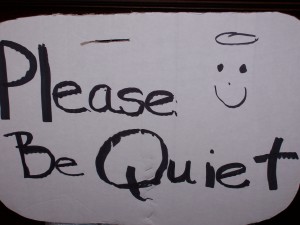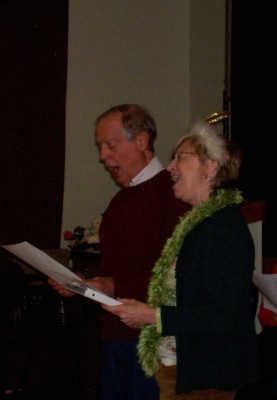Your Call is Important Blah, Blah, BLAH
I lost a day and half of my life to Customer Service last week. Its reverberations are no longer keeping me awake at night but I still shudder during the day when I pass the oven.
It began when I called Seattle Public Utilities to make a payment arrangement. I’ve been doing this for years. The bill comes. I call them. I pay half by debit card over the phone and the next month I pay the other half on-line. It usually goes smoothly.
But last week the very polite and accommodating agent accidentally charged my debit card twice and over-drew my account. My first call to them the next morning snagged me someone who sounded flustered and who after putting me on hold a few times to “check something,” finally cut me off. I called back and put myself through the menus a second time. The next agent had the soft voice of a 16 year old.
“Well, you know,” she said sweetly. “If you leave it as it is, your balance is only $4.38.”
“Do you understand the point of a payment arrangement?” I asked. “If I had the money now, I would pay the whole bill now.”
“I’ll be happy to request a refund for you,” she said.
I don’t fault Seattle Public Utilities for politeness. And they are usually efficient. Just have to say that
“How long before it goes through?” I asked
She had to check.
“Two or three days,” she said.
“Well, that’s not acceptable,” I said. “You’ve overdrawn my account. It’s the end of the month. I can’t wait two or three days.”
“Is there anything else you have to say?”
This is the same cold line Detective Chief Superintendent Foyle uses on a Nazi spy in an episode of Foyles’ War called “Plan of Attack.” It did not help my state of mind.
I asked to speak to a supervisor. Sometimes when in the middle of customer service hell, I forget this is possible. With menus I forget that doing nothing is the fastest way to talk to an actual human being.
The supervisor handled the whole thing admirably and the refund showed up the next day. I was not nearly as calm as this writing suggests but I am saving myself for writing about the real explosion, which came the next day.
It involves a company that I will call Scorches—and some of you will figure it out—until I am certain they have got me out of their system. I needed my oven looked at. The fan was behaving oddly and making scary noises that I didn’t like to hear when I was roasting something at 475 degrees.
The agent who scheduled my call spoke 80 miles an hour, in a thick accent, and from the other side of the world. Her name was Judy. Uh-huh.
I wanted to know the cost of the call. She couldn’t tell me. That depended on what needed to be done. Only it took her 3500 words to tell me this.
“What if he just comes over here and wipes his feet on the door mat?” I asked.
“$117.”
Ok, good. I’d only been on the phone ten minutes. We were making progress.
“But,” she said. “If you buy” –wait for it—“Our Warranty. . .”
God help me, I know better than to fall for this, but I did, possibly because it was the end of the month and I’d just had this contretemps with Seattle City Utilities. No, scratch that. I have no excuse.
The Warranty, as outlined by Judy with her mouth full of something and at 80 miles an hour, seemed to promise that for $40 a month, all parts and repairs would be covered and I could cancel the contract after three months. That suggested that the serviceperson could do more than wipe his feet on the doormat and in the end it would only cost me $3 more than the price of one service call.
I asked her to repeat her information more slowly. I rephrased my questions to make sure I understood. Then I gave her my debit card info.
I awoke the next morning with the niggling feeling that I should have had the day before. I called Scorches customer service department, got a different agent with just as thick an accent from a different hemisphere of the world, but talking only 50 mph. Name of Janet.
“I just want to make sure that I understand this,” I said. “I bought a warranty, which I can cancel after three months that will pay for any parts and repairs of the service I have scheduled for today. Is that correct?”
It was.
The repair person who showed up that afternoon looked like it was his first day back on the job after recovering from a nervous breakdown. He was so timid that I had duck my ear next to his mouth to hear anything he said.
He fiddled around with the oven light, which was faulty, but not why I scheduled the appointment, and purported to clean the fan. He then told me it should all be okay now and he needed to collect the $60 deductible.
“No,” I said. “I bought the warranty and was told it would cover this visit. No one said anything to me about a deductible.” I breathed hard through my nose.
He fiddled on his computer and said that there was a $60 deductible for the first service call of the warranty.
I was starting to snort and had to sit down to keep from pawing the ground.
“I’m not paying anything,” I said.
I flashed back to when the IRS used to tell us—utterly without shame– that we were responsible for inaccurate information given to us by their customer service agents. And a health insurance agent for Double Cross –some of you will figure it out–refused to honor inaccurate information that I based a $2000 decision on. I remember screaming at a Double Cross agent that if they were a legitimate business they’d be bankrupt in a month. But I was young and idealistic back then and the agent probably was, too.
My nervous repair person called Customer Service and got another accent at 150 mph. If I was snorting and pawing the ground, the bull on the other end of the line was already charging. His verbiage hit me with the force of a whole herd. I stood up and started pacing.
“Wait. . . Stop. . . NO! I was told. . . Just a minute. . .”
On and on he went. I once dumped an entire dinner table into the lap of a boyfriend who wouldn’t shut up. (See 99 Girdles on the Wall pgs 73-77.)
“SHUT UP!!!” I hollered into the phone. My feet almost came off the floor. Sounds continued to crackle out of the phone. I put it down.
The repairman heard me across the street in his truck and looked like he wanted to drive off immediately but I had his phone. He crept back into the house and said, “We can just cancel this visit.”
“Fine.” I gave him back his phone.
By then it was 2:00 on a Friday afternoon. I spent the next four hours on hold, punching in menu options or waiting to be called back. Saturday morning I was on hold for 45 minutes before finally learning that the warranty office was closed until Monday. I had a reasonably nice weekend before resuming the fight on Monday morning.
I made my way through the menus to the warranty office and asked to speak to a supervisor. The agent wanted more information in order to better serve me. Uh-huh. I told her I wanted to cancel the warranty I had just bought.
“Oh, I can help you with that!” she said brightly.
She asked me a bunch of questions about my service call. She said she could cancel the warranty but she had to get her supervisor, which was where I had come in half an hour before. Her supervisor was on another line but while we were waiting she wanted to make sure I understood what this warranty could do for me.
“I don’t care what it can do for me,” I said. “Your agents lied to me in order to sell it to me and I want to cancel it.”
“I’m sorry you feel that way.”
I got the whole bucket of crapola one last time from the supervisor. “I’m not sure you understand how useful this warranty is,” she began.
The only thing I understood was that they all thought I was stupid. Reading over this post it occurs to me that the idea has some credence.
“Your dis-respect of me in trying to sell me something I have told you repeatedly that I don’t want is not helping you or your company’s reputation,” I said.
“I’m sorry you feel that way. I can definitely cancel this for you. . . there. Do you want the cancellation number?” She spat out the question.
I watched my account until the refund posted. I had managed to get through all the phone calls without giving Scorches my e-mail address but now things are coming from them in snail mail.
And the racket the oven fan is making? I’ll live with it. I’m sorry I feel this way.
 RSS Feed
RSS Feed




